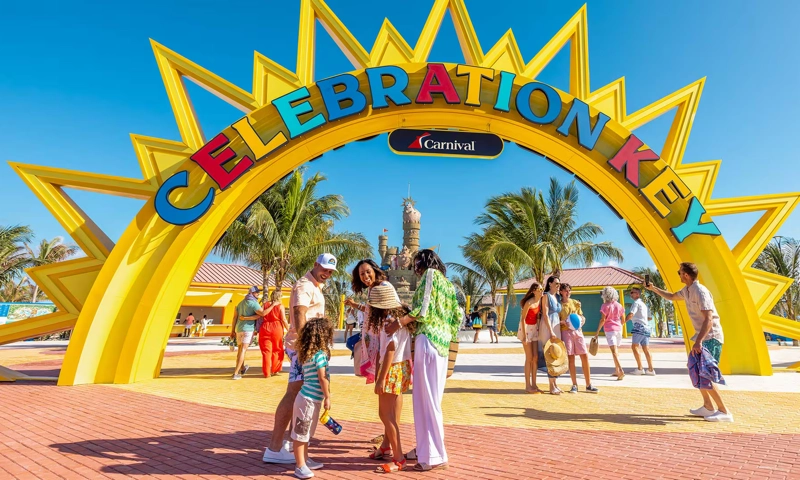Recent Drownings Prompt Immediate Action
Urgent calls have arisen for enhanced safety measures at Carnival Cruise Line’s newly opened Celebration Key in the Bahamas following two tragic drownings of American tourists on August 15. The incidents, which occurred mere hours apart, have drawn significant attention to the potential safety oversights at the $600 million facility, prompting maritime attorney Peter Walsh to highlight alarming systemic failures in lifeguard staffing, emergency response, and overall safety infrastructure.
Responsibility and Oversight in Cruise Resorts
Walsh emphasized that cruise lines bear a substantial responsibility when operating private island resorts. He pointed out that this duty of care extends from the ship to the land-based facilities they manage. Given that Celebration Key is designed, staffed, and operated entirely by Carnival, the cruise line must assume full accountability for passenger safety, especially in light of these unfortunate occurrences. Walsh suggested that such incidents could hint at deeper flaws in oversight and preparedness.
Legal and Moral Implications
In discussing the ramifications of these drownings, Walsh noted that U.S. courts expect cruise lines to uphold the highest safety standards when they control the entire environment. The implications—whether legal, financial, or moral—for Carnival and the broader cruise industry are quite significant. He has called for independent safety audits to assess current protocols, enhanced lifeguard staffing, and increased transparency within the industry to prevent similar tragedies from happening again.
Legislative Recommendations and Peer Pressure
Walsh also appealed to lawmakers in both the U.S. and the Bahamas to keep a closer eye on private cruise resorts, advocating for stricter oversight to ensure passenger safety. He urged the cruise industry as a whole to be proactive in implementing necessary water safety reforms, highlighting the pressing need for change to protect future visitors. Walsh’s full commentary can be accessed through the Orlando Sentinel.
Historical Context of Cruise Line Operations
The cruise industry has experienced significant growth, evolving from its modest beginnings. The first pleasure cruise is believed to have occurred in 1881, initiated by Oceania Yachting Company. However, the modern cruise era is often pinned to 1966 when Carnival began its operations in the Caribbean, paving the way for the popularity of cruise vacations as floating resorts packed with entertainment, activities, and luxury accommodations.
Surge in Popularity and Growth
Today, the cruise sector has become a multi-billion dollar industry with a robust demand for diverse routes and destination options. In recent years, growth has been driven by advancements in marketing strategies and the expansion of vessels designed to provide more amenities and comfort. Contemporary cruise ships resemble floating cities, complete with an array of restaurants, bars, pools, and entertainment venues, often competing with traditional land-based resorts.
The Impact of Safety Regulations on Tourism
The ripple effect of elevated safety standards is far-reaching within the tourism sector. Cruise incidents, particularly those involving passenger safety, can tarnish a destination’s reputation and lead to a decline in visitor numbers. This scenario underscores the importance of maintaining high safety protocols as part of cruise line operations not just for passenger protection, but also for sustaining the economic vitality of ports-of-call, particularly in regions like the Caribbean where tourism is a key driving force.
Potential Future Developments
Looking forward, the cruise industry must address ongoing safety concerns to maintain consumer confidence and ease any worries regarding travel to private destinations. As the focus on safety intensifies globally, the cruise industry can expect increased scrutiny from regulators and lawmakers alike, which may lead to a transformation in operational norms and industry practices.
Conclusion
The recent drownings at Carnival’s Celebration Key have sparked urgent discussions around safety reforms and company accountability within the cruise industry. These tragedies not only signal a need for immediate improvements but also highlight broader implications for international tourism—especially in the context of resorts and cruise destinations reliant on visitor safety. As the call for enhanced measures gains traction, it’s clear that proactive steps are essential to safeguard passengers and preserve the industry’s reputation.
For those seeking exciting sailing adventures in safe and beautiful locations, GetBoat.com serves as an international marketplace for renting sailing boats and yachts, catering to every taste and budget. Whether exploring tranquil lakes or vibrant coastal cities, having access to reputable vessels is critical for ensuring memorable maritime experiences in the world of yachting.


